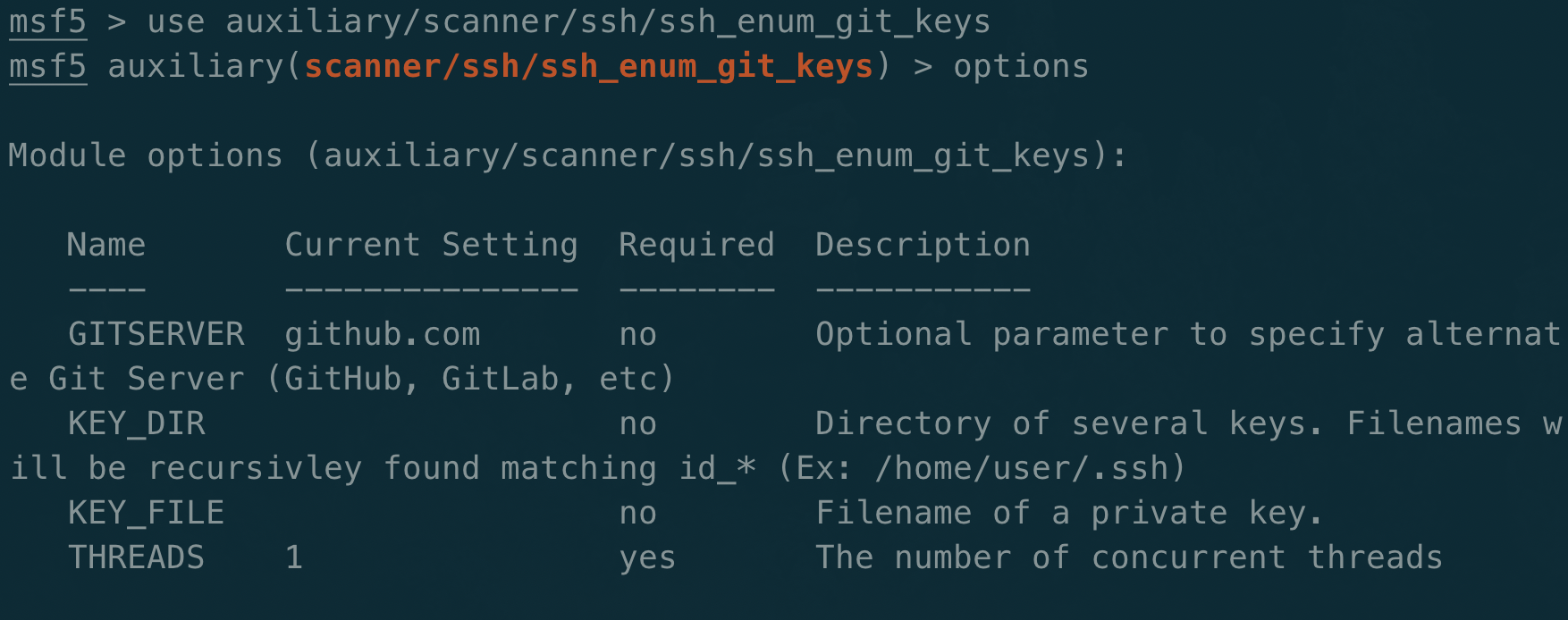Post Exploitation through Git with SSH Keys
Git is a version control system that allows content to be shared and modified. It is popularized by GitHub, however many other companies have their own Git server. These servers can provide a wealth of information during engagements. It can be helpful for research on a company by providing a list of developers that are contributing to a company repository. This information can be put into popular tools such as Gitrob or truffleHog and leak potential secrets that could compromise a company. For companies that run their own GitHub Enterprise server, their rules on passwords in GitHub may be more lax.
There hasn’t been much discussion into post-exploitation through GitHub. This is likely due to many security professionals not knowing how to use git or just running out of time on engagements. Diving into post-exploitation with GitHub is an excellent way to steal private repositories and impact production code.
In a linux environment, SSH keys are normally stored in the ~/.ssh/ folder. They come in public/private key pairs. A developer can use these keys to authenticate to GitHub over SSH. This allows them to read and write content. GitHub allows for repositories of code to be stored with public or private permissions.
GitHub allows many keys to be stored for a user account. This is helpful because it allows users to create different keys on their different computers. For an attacker, the scope is increased every time a new key is added to GitHub. An attacker only has to compromise one of those keys to gain persistent access to GitHub.
A Metasploit auxiliary module was written to quickly enumerate local SSH keys and test their access to GitHub. Other modules can be used to scrape keys from a host. A compromised user will only have access to their keys unless they can make a lateral escalation. A root user that is compromised will have access to all keys on the host. This metasploit module speeds up the checking and can be used with Github and GitLab. It can easily be extended to other servers as well.

Once this private key is obtained, it can be used with a simple config file:
$ cat ~/.ssh/config
Host github
HostName github.com
User git
IdentityFile /home/wy/.ssh/id_ed25519
Access can be tested through:
$ssh -T git@github
If successful, the response will tell who the user is.
The first option for post-exploitation is to read private repositories. GitHub does not provide an easy way to view these without a Personal Access Token, so guessing/bruteforcing will have to be done. Other git servers may allow querying to private repos such as Gitolite (https://bytefreaks.net/gnulinux/bash/how-to-list-all-available-repositories-on-a-git-server-via-ssh). In organizations that deploy production creds through layering on private repos, this could be an easy task.
Example:
- My-repo-1 is the code base
- My-repo-1-shadow contains the creds that are layered on top of My-repo-1
By appending -shadow to the known public repos, a user with a stolen ssh key could download the sensitive credentials.
If there aren’t any patterns, a suggestion would be to look for references to other projects and create a wordlist. A for loop trying to clone each repo for the user could lead to success.
Reading sensitive repos is a great win, but it limits what can be done. Writing to a repo brings on endless opportunities to backdoor code. How often do developers trust what’s already been committed? Most start their day off doing a git pull on a repo to make sure they are up to date. An attacker could modify code and put a backdoor into the master branch. The next developer that runs it could grant a reverse shell to the attacker. If build processes are weak, this code could be automatically pushed into production.
SSH Keys can provide a method of persistence in an environment. They are commonly used for access to servers, but the extended trust to servers like GitHub allows for an attacker to maintain access in an organization. Revoking the keys from the compromised server will still allow an attacker to use the keys to access GitHub. An attacker that has access to the Git server can add their backdoor and wait until they are let back in.
How can this be avoided?
SSH keys can be configured to use passphrases. Most people don’t use them. It is highly recommended to enforce passphrases on SSH keys.
Passphrases can even be added to existing private keys:
$ ssh-keygen -p -f ~/.ssh/id_rsa
An attacker will have to crack the password on the key to be able to use it. This isn’t a failsafe, but provides some defense in depth for an already compromised host.